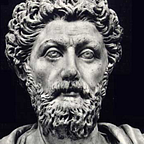The single rule to build wealth
Hacks and sophistication won’t take you anywhere
Rules we learn from childhood
I suspect the triviality of some basic rules triggers our stubbornness, making us to ignore them for a long time.
Whenever I think about this subject, it comes up to my mind the following examples:
- “Save money; it’s important for your future”.
- “Do exercise; it’s good for your health”.
- “Read books; it’s good for your knowledge”.
- “Follow the rules, one day you’ll thank me”.
Incredibly as it may sound, we fail in the basics. How could we succeed in every aspect of life?
The stupid rule to build wealth
The rule to build wealth is a straightforward simple math:
Account Balance = cash inflow — cash outflow
I wonder if we tend to ignore this formula for being simple and looking stupid in such a way we fail to use it in our favor. It means “spend less money than the money you make”.
This rule and the wisdom behind it are clear-cut and yet we consistently fail on that. Why?
The harmfulness of uncontrolled lives
I have relatives that are very well-paid, top 5% considering the Brazilian average income. Yet, some manage to get up to 16 simultaneous loans.
A more common situation is when we’re endlessly on a 0–0 score. My first job paid me a minimum wage, while I didn’t have any duties for that money. In theory, I could’ve saved 100% of that.
I had enough education to know “I should save money”. I was conscious enough to never run into debt. I also saved money here and there, but only because I wanted to acquire things.
“I don’t have enough to save”
I can easily remember my excuses saying “I don’t have enough to save”. That’s ordinary. With the same ease, I forgot all the silly destinations that money had.
It’s 10 years later, and I save money regularly for a while but only now I think I truly incorporated the meaning of such words. Nothing to worry, this is the learning process:
- We learn a sentence;
- We learn the literal meaning of its words;
- We finally understand the underlying assumptions behind those words.
In psychology, this is known as the Hierarchy of Competence.
I needed to read The Richest Men in Babylon to finally understand the meaning of the words “you should pay yourself first”, which brings the importance of “living at a few steps down”. Simple as it may be, this book could’ve changed subtly my last 10 years with an exponentially different outcome.
We always should live on a lower level than what we can afford. Always!
“I worked and I deserve to have that stuff”
As an employee, we exchange time, energy, and intelligence for recurring, predictable, and stable money inflow. That’s our pay. But money is just a currency for us to exchange for supplies.
We are naturally tempted to believe that we should buy everything we want to reward ourselves for that effort. This misleading idea is likely one of the most harmful conclusions for your old days.
We will always want more than we can afford. If we pursue everything we want, we’ll always spend 100% of what we make — with a credit card these expenses could go beyond and become a huge debt.
When we spend all the money we have, buying products and services, we’re paying everyone else. We’re not paying ourselves because most of those things won’t improve our lives.
Ten years ago I used to buy gadgets and stuff I can’t remember anymore. This inability to recall says by itself: such stuffs were not important at all.
“I don’t need a budget, I have a different approach”
We often ignore the act of budgeting, mistakenly believing we don’t need it such a level of self-organization. People establish a budget since ancient times, get rich and we believe we’re the innovators who just created a new approach to manage money, which hasn’t proven itself yet, but we insist on that path.
The budget is what makes tangible the deliberate commitment of saving some money for our future beings. It’s all about Method, from Descartes, to plan, execute, and refine your plan.
The budget is the action plan and the thermometer that will tell us if we’re doing well or if we need some adjustments here and there.
Saving money is self-care
There will be a time where we’ll not have the same time and energy to work the same long hours we work today. When we save money, we’re paying for our safety in the future.
We’re paying for the peace of mind in the present moment — whenever we have troubles, we’re safe.
We’re ensuring our family is covered in adversity times.
There’s nothing like buying safety for us and our beloved ones. This is self-care.
